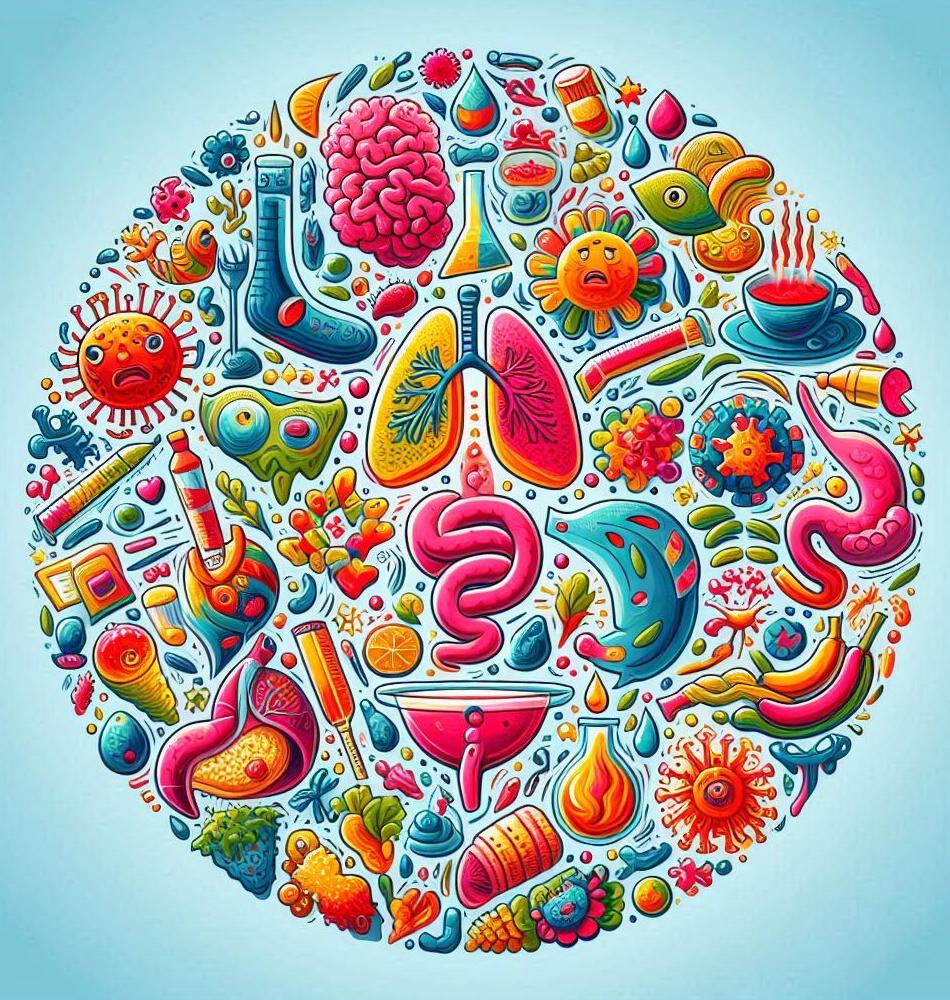When it comes to our health, acute illnesses can strike suddenly and disrupt our daily lives in ways we least expect. From the common cold to more severe infections, understanding these conditions is essential for effective management and prevention. This article delves deep into the most common acute illnesses, providing insights into their symptoms, causes, and remedial measures. So, buckle up as we embark on this informative journey!
What Are Acute Illnesses? 🔍
Acute illnesses are characterized by their sudden onset and relatively short duration. They can vary from mild to severe and often require immediate attention. Unlike chronic illnesses, which persist over a long period, acute conditions can sometimes resolve on their own or may necessitate medical intervention. Here, we outline some of the most common acute illnesses faced by individuals in their daily lives.
1. The Common Cold 💧
What Is It?
The common cold is a viral infection that primarily affects the upper respiratory tract. With symptoms ranging from a runny nose to sore throat, it is one of the most frequent acute illnesses experienced by people around the world.
Symptoms
- Runny or stuffy nose
- Sore throat
- Cough
- Fatigue
- Slight fever
Causes
Colds are primarily caused by viruses such as rhinoviruses and coronaviruses. They are easily spread through respiratory droplets when an infected person coughs or sneezes. Touching contaminated surfaces can also lead to infection.
Treatment and Prevention
While there is no cure for the common cold, symptoms can be managed with rest, hydration, and over-the-counter medications for relief. Preventive measures include regular handwashing and avoiding close contact with infected individuals.
2. Influenza (Flu) ❄️
What Is It?
Influenza, commonly known as the flu, is a highly contagious viral infection that affects the respiratory system. It is often confused with the common cold but tends to have more severe symptoms.
Symptoms
- High fever
- Extreme fatigue
- Body aches
- Chills
- Cough and sore throat
Causes
The flu is caused by the influenza virus and is spread through respiratory droplets. It can also be contracted by touching surfaces contaminated with the virus.
Treatment and Prevention
Antiviral medications can help shorten the duration of the flu if taken within the first couple of days. The best prevention is the annual flu vaccine, along with practicing good hygiene.
3. Gastroenteritis 💩
What Is It?
Gastroenteritis, often referred to as the stomach flu, is an inflammation of the stomach and intestines resulting in symptoms such as diarrhea, vomiting, and abdominal cramps.
Symptoms
- Diarrhea
- Vomiting
- Abdominal cramps
- Fever
- Headache
Causes
This condition is usually caused by viral infections, bacterial infections, or parasites. Common sources include contaminated food or water, as well as contact with infected individuals.
Treatment and Prevention
Maintaining hydration is crucial in managing gastroenteritis. Avoiding spicy and fatty foods until recovery is also recommended. Handwashing and food safety practices are key in prevention.
4. Sinusitis 🌬️
What Is It?
Sinusitis or sinus infection occurs when the sinus cavities become inflamed, often due to an infection, causing discomfort and a range of symptoms.
Symptoms
- Facial pain or pressure
- Red or swollen nasal passages
- Thick nasal discharge
- Decrease in sense of smell
- Coughing
Causes
Sinusitis can result from infections, allergies, or other nasal issues. Unlike a common cold, it often lasts longer and can lead to complications if untreated.
Treatment and Prevention
Most cases can be treated with nasal decongestants and saline sprays. Antibiotics may be prescribed if a bacterial infection is suspected. Preventive measures include avoiding allergens and maintaining air quality.
5. Urinary Tract Infections (UTIs) 🚽
What Is It?
Urinary tract infections are infections in any part of the urinary system, including the kidneys, bladder, and urethra. They are more common in women than in men.
Symptoms
- Frequent urge to urinate
- Burning sensation during urination
- Cloudy or bloody urine
- Pelvic pain
- Strong-smelling urine
Causes
Most UTIs are due to bacterial infections, usually from the Escherichia coli bacteria. Poor hygiene, sexual activity, and certain types of birth control can increase the risk.
Treatment and Prevention
Antibiotics are commonly prescribed for UTIs. Preventive measures include drinking plenty of water, urinating after sexual intercourse, and practicing proper hygiene.
Frequently Asked Questions (FAQs) ❓
- What are acute illnesses?
- How can you tell if you have the flu or a cold?
- Are acute illnesses preventable?
- What should I do if I have symptoms of an acute illness?
- Can acute illnesses lead to chronic conditions?
Conclusion 🌈
Acute illnesses, while often sudden and disruptive, are manageable with appropriate care and preventive measures. Understanding the symptoms and causes of these conditions can empower individuals to seek timely medical attention. Regular check-ups, maintaining good hygiene, and adopting healthy lifestyle choices can significantly decrease the chances of contracting these illnesses. Knowledge is a powerful tool in promoting health and wellbeing; thus, staying informed is key in fostering a healthier life.


